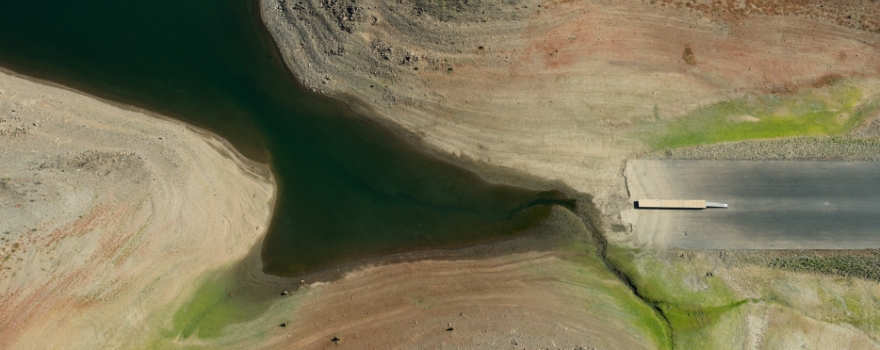 Action focuses board on reducing greenhouse gas emissions and building resilience to climate change impacts
Action focuses board on reducing greenhouse gas emissions and building resilience to climate change impacts
From the State Water Resources Control Board:
Today the State Water Resources Control Board adopted a resolution requiring a proactive approach to climate change in all Board actions, including drinking water regulation, water quality protection, and financial assistance.
“Today’s Board action is part of California’s continuing leadership on climate change,” said State Water Board Vice-Chair Fran Spivy-Weber, and co-chair of the Brown administration’s water-energy team of the Climate Action Team (WET-CAT). “As our dramatic swing from severe drought to record-setting precipitation shows, we are already experiencing the impacts of more extreme weather, and face significant challenges to improve the resiliency of our water systems, from our dams to our groundwater basins.
“The Water Boards have a critical role to play because our programs range across water conservation, recycling, stormwater management, groundwater management, and surface water allocation. We can reduce greenhouse gas emissions, protect our infrastructure and our ecosystems,” said Spivy-Weber.
This action builds on a resolution adopted by the Board in 2007, which set forth initial actions it should take to respond to climate change and support the implementation of Assembly Bill (AB) 32, the landmark climate change law that was adopted in 2006. Since that time, the Brown administration developed the California Water Action Plan, a blueprint for achieving more sustainable water management by improving water supply reliability, restoring important wildlife and habitat, and making the state’s water systems and environment more resilient.
Since 2007, the State and Regional Water Boards have taken a variety of actions to respond to climate change impacts. Examples include funding the expansion of recycled water to increase drought resilience, adopting regulations to increase the collection of urban stormwater, and reducing flood risk and enhancing water supply.
In addition, the Water Boards are implementing legislative mandates to strengthen climate change resilience, including the Sustainable Groundwater Management Act, which will bring depleted groundwater basins into balance to provide a buffer against future droughts. The Los Angeles Regional Board has been active as well. To learn more, visit their climate change portal.
The directives called for in today’s resolution include tracking and reporting on actions to reduce greenhouse gases, coordination with internal and external stakeholders to account for climate change, and development of recommendations for specific, enforceable actions over time. One of the directives requires collaboration with the California Air Resources Board and other agencies to reduce methane emissions from landfills, feedlots, and wastewater treatment plants, as part of the state’s goal of reducing short-lived climate pollutants.
The resolution also requires State Water Board staff to use current models and data to inform Board actions. State regulators can no longer rely solely on historical data to guide decisions under climate change. To increase regulatory consistency, the resolution also requires staff to use climate change policy guidance from other agencies. For example, for decisions relating to coastal infrastructure protection, staff must use guidance from the California Coastal Commission and Ocean Protection Council.
Additional Climate Change and Drought Resources
For more information on the state’s effort to combat and adapt to climate change, visit the climate change portal here. To follow the state and regional water board efforts on this, visit the climate change page here.
 Sign up for daily email service and you’ll never miss a post!
Sign up for daily email service and you’ll never miss a post!
Sign up for daily emails and get all the Notebook’s aggregated and original water news content delivered to your email box by 9AM. Breaking news alerts, too. Sign me up!

